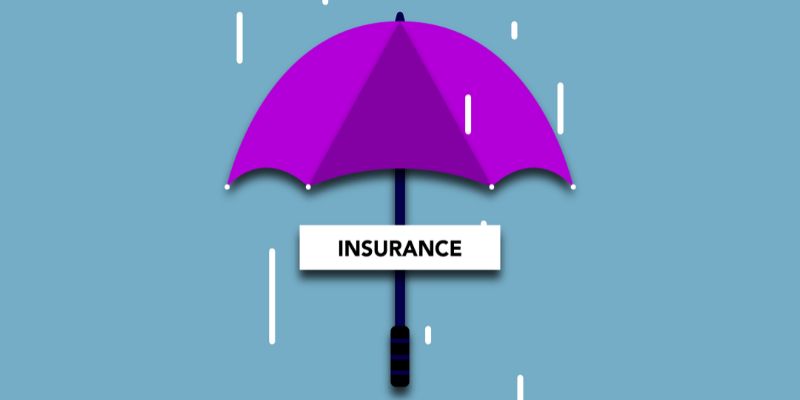Get To Know What Is Credit Life Insurance
Nov 26, 2024 By Kelly Walker
Insurance is an effective way to get yourself covered, whether for health, auto, or house; it provides a piece of mind to the policyholders. But if someone, for unfortunate reasons, dies or is in a life-and-death situation, then what about the debts or payments that are still pending on a person's account?
For paying the outstanding amount or debt in case the policyholder dies, credit life insurance comes as a savior; in other words, credit life insurance is an insurance policy designated specifically to pay off loans or any outstanding amount on the borrower's end if they die. Usually, credit life insurance is used against large-scale loans such as mortgages or car loans.
One thing to note here is that the value of the insurance is proportional to the payable/outstanding loan amount; as the loan amount decreases or is paid off, the credit life insurance also decreases until the loan amount becomes zero and nothing remains.

Understanding Credit Life Insurance
Credit life insurance differs from your typical insurance as it is offered when a borrower takes a large sum of money; typically, this type of amount includes a mortgage, car loan, and a large line of credit. Credit life insurance kicks in when a borrower dies and provides protection against the loan payments.
This policy proves more beneficial and fruitful if the policyholder has a co-signer or a dependent that relies on or inherits an asset such as a home. Credit life insurance provides coverage and protects the co-signer from making loan payments after the policyholder's death.
In general, debts are not inherited; if you don't have any co-signers, your heirs are not obligated or responsible for paying off loans on your behalf; some states follow the law of community property in which only your spouse can be liable to pay your debt, not your children.
It is a fact that banks or other financial institutions consider and accept the risk that the borrower might die before paying the debt; in this scenario, life insurance plays a crucial role in protecting the lender and ensuring heirs will get the assets.

Is there any Alternative to Credit Life Insurance
Suppose you are concerned about the repayment of your loans or debts and the protection of your heirs and want them to be responsible for paying off your death after your death. In that case, conventional term life insurance is the most thought-out and make-sense option, where insurance benefits will be paid to the beneficiaries instead of the lenders. With these benefits, they can pay off your remaining debt.
Term life insurance is more convenient and affordable than credit life insurance for a certain amount; similarly, your beneficiaries can either use all the benefits to pay your debt or use some of it, depending on the debt and benefits they will get.
With time the value of credit life insurance drops as it is proportional to the outstanding balance of your loan, whereas a term life insurance policy retains its value and stays the same.
Credit Life Insurance Advantages
The most notable advantage of credit life insurance compared to term life insurance is less strict rules for health screening and low requirements; in many cases, there is no requirement for health issues, and you will get guaranteed credit life insurance.
On the other hand, term insurance has tight health requirements, so if you are in good health, the premium price on term insurance is higher when purchased at an older age. Moreover, credit life insurance is voluntary, which means lenders don't have to demand or consider it while issuing a loan.
It has no impact on the lenders' decision-making and issuance of loans, and their decision to grant a loan is not based on having credit life insurance. But it can become a toll on your monthly payments if you have it on a higher loan amount; you have to pay an extra amount to have credit life insurance and other premiums. It is better to ask or inquire about the role of credit life insurance with your lender.
Who Is The Sole Beneficiary Of Credit Life Insurance?
The sole beneficiary of your credit life insurance is the lender who provided you the funds in the form of a loan or debt; the benefits of credit life insurance are used to pay the loan, and the heirs or co-signer don't get any benefit from this particular policy type.
Does Everyone Need Credit Life Insurance?
There is no requirement for credit life insurance while applying for a loan; in fact, it can sometimes swell into a loan; federal law prohibits lenders from making it a requirement for lending loans or debts.
Main Purpose of Getting a Credit Life Insurance
The main goal of getting credit life insurance is to provide protection and coverage to co-signers or heirs in case of policyholder death; credit life insurance comes to play and pays the policyholder any outstanding debts. It repays the remaining debt amount and protects the policyholder heirs from liability.
Final Thoughts
Credit Life Insurance is a good option to safeguard your heirs and co-signers from the hassle of paying your debts or loans after your death. Usually, it applies to a large amount of debt like house mortgage, car loan, and other high-amount loans; in case of the borrower's death, life insurance pays all the remaining or outstanding debt amount to the lenders. It is not compulsory to have credit life insurance for getting any loan or debt, and it has no effect on the approval process; it solely is your decision whether you want it or not, depending on your circumstances and financial constraints.

Best disability insurance long-term Plans

What Is an IPO Lock-Up?

Most Famous Leveraged Buyouts

Why Private Banking Might Be the Right Career for You

What Do You Need To Know About Cards?

Get To Know What Is Credit Life Insurance

Total Enterprise Valuation (TEv): Definition, Calculation, Uses

What Is Management by Objectives (MBO)?

Charting the Richest Amazon Shareholders of 2023: Who's Leading the Pack?

